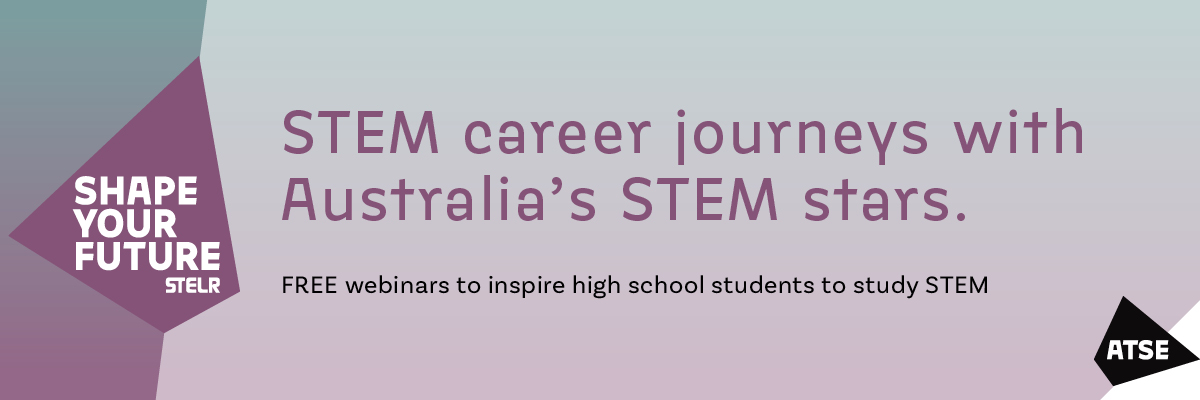
ATSE’s STEM education initiative, STELR, brings together a panel of inspiring STEM professionals on the occasion of International Asthma Day and Science Education Day.
The discussion will showcase the journey of our STEM stars in education and respiratory health, and they will discuss their professional experiences, STEM insights, lessons they have learned along the way, and the breadth of skills they have developed. These discussions will invite students to visualise their potential to develop diverse skills that can lead to rewarding STEM careers. The session will be moderated by ATSE Fellow, academic, and industry leader Professor Katrina Falkner FTSE. The panel include, Suzie Urbaniak (Founder and CoRe Lead, CoRe Learning Foundation), Associate Professor Johnson George (Monash University) and Dr. Nadya Panagides (Post Doctoral Researcher, University of Queensland). Join our 2023 inaugural session to interact with our STEM stars about their journey in science, technology and education.
SPEAKERS
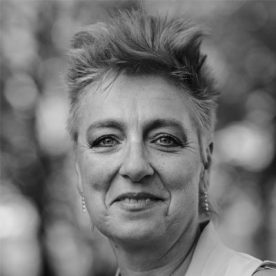
Suzy Urbaniak
Founder and CoRe Lead, CoRe Learning Foundation
Suzy Urbaniak firstly worked as a geologist, finding gold in the Great Sandy Desert and Kalgoorlie. She later had to turn to education as a career path to support herself and three young sons. Suzy never imagined herself to be a teacher! Still, when she had to, she knew her students would be young scientists and engineers in her classroom, exploring, creating and discovering. She would bring the real world into the classroom and take her students out into the real world. Suzy later coined this ethos #therealclassroom. After many years, the seeds of the CoRE Learning Model had evolved. With the support from her school and colleagues at Kent Street Senior High School – CoRE (The Centre of Resource Excellence) was officially launched as a STEAM Learning Program in 2015. In 2019, together with two of her colleagues, the CoRE Learning Foundation (NFP) and its CoRE Expansion Program commenced. Making learning real for students, connecting their education to the resources industry and other STEM careers. Suzy has undertaken > 110 field trips with her students, currently coaches 50 educators, works within twenty-one schools in Western Australia, and supports ~120 educators through CoRE’s Gamifying Earth Science Initiative. She was awarded the Prime Ministers’ Prize for Excellence in Science Teaching in 2016. She was inducted into the Western Australian Women’s Hall of Fame in 2018, in 2020 was acknowledged as Australian of the Year 2020 WA Local Hero, and in 2021 was a finalist in the West Australian of the Year. Suzy is passionate about ‘supporting today’s youth for tomorrow’s world’ and ensuring that students have diverse learning tasks. Their talents and capabilities shine, and their learning achievements are recognised as improvements and successes.
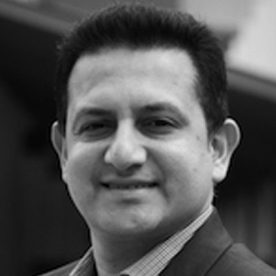
Associate Professor Johnson George
Teaching & Research academic
Associate Professor Johnson George is a Teaching & Research academic at the Centre for Medicine Use and Safety, Faculty of Pharmacy and Pharmaceutical Sciences, Monash University. He is renowned for expertise in interdisciplinary research in primary/secondary/tertiary settings and translating high quality evidence from clinical trials and systematic reviews into real world clinical practice. He is also a member of Monash University’s Academic Board.
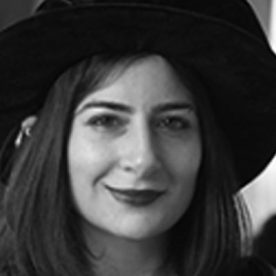
Dr Nadya Panagides
Post Doctoral Researcher, University of Queensland
Dr Nadya Panagides specialises in cancer immunology and therapeutics development, harnessing the mechanisms of the innate immune system to target cancer. Dr Panagides is an early career research scientist working at the AIBN within the University of Queensland. She completed her PhD in November 2021 with the ARC training Centre for Biopharmaceutical Innovation (CBI) in collaboration with CSL Ltd. Her research focus was to use phage display biopanning techniques to isolate novel antibodies against cell-surface biomarkers. As an outcome of this project, Nadya produced a monoclonal antibody that could inhibit the function of a shared cytokine receptor; with aberrant expression of the target receptor implicated in myeloproliferative, autoimmune and chronic respiratory diseases.
Since completing her PhD, Nadya has been working in Associate Professor Barbara Rolfe’s laboratory investigating the role of the complement system in cancer, investigating the cellular mechanisms of anti-inflammatory drugs that limit cancer growth. Additionally, Nadya manages and directs external immunology research projects, which examine the foreign body response to implanted materials, such as biomedical devices and extracellular vesicles. Prior to their PhD candidature, Nadya spent four years (including their honours research project) in Associate Professor Bryan Fry’s lab performing proteomic fingerprinting of African snake venoms and exploring the anti-cancer properties of venom toxins. Dr Nadya Panagides has a large repertoire of technical expertise, including molecular biology techniques, antibody engineering and protein-based analytical techniques (HPLC, SPR, ELISA), flow cytometry and cell-culture techniques, as well as extensive experience with mouse models.
Nadya is a South African citizen with Mediterranean heritage. They are an active member of the Australian and New Zealand Society of Immunology (ASI) and The Antibody Society. In their spare time, Nadya enjoys science communication and co-hosted Natural Reaction, a STEM-based radio show (now a podcast) on 4zzz community radio.
MODERATOR
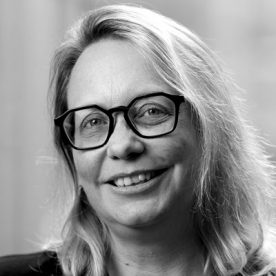
Professor Katrina Falkner FTSE
ATSE Fellow, academic and industry leader
ATSE Fellow Professor Falkner is the Executive Dean for the Faculty of Sciences, Engineering and Technology, and leads the Computer Science Education Research Group (CSER), and the Modelling & Analysis Program within the Distributed and Intelligent Technologies Group (DIT) within the School of Computer Science.
Professor Falkner has extensive experience in industry consultation, including work with DST Group, NICTA, Google US, Google Australia & New Zealand, the Commonwealth Department of Education and Training, and Telstra Foundation, crossing both the areas of Computer Science Education (within CSER) and Distributed Systems and Modelling (within DIT). As part of her work within CSER, Professor Falkner has led the development of the CSER MOOCs – open online courses for Australian teachers to help prepare them for the Digital Technologies Curriculum, and leads the national CSER Digital Technologies Education Program, designed to support Australian teachers in teaching Computer Science, with an emphasis on supporting young women, low-SES and Indigenous populations.